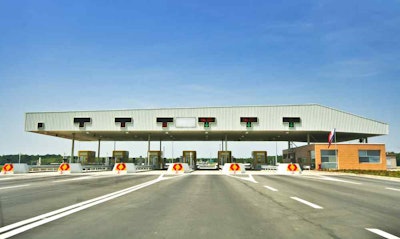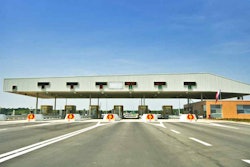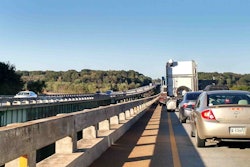 Even with electronic tolls, the system can waste 14 to 20 percent of revenues on administrative costs.
Even with electronic tolls, the system can waste 14 to 20 percent of revenues on administrative costs.The U.S. Senate Environment and Public Works committee wants to expand the pilot program for interstate highway tolls. The committee’s proposed $275 billion highway bill would make it easier for states to apply for approval to install tolling on existing roads.
This would be done through the Interstate Reconstruction and Rehabilitation Pilot Program, which has worked with six states to try to establish polls. All failed after loud public protests. Here are some of the problems:
- Tolls divert traffic to free roads. This can mean more congestion, accidents and wear on local roads that are not suited to heavy traffic. Emergency first-response times can be slowed. The increased maintenance costs on the free roads fall to state and local governments.
- Paying tolls is inconvenient. Congestion is bad enough in most urban areas, so no one wants more delays.
- Tolling comes with huge costs: building and maintaining structures, staffing and the collection and distribution of funds. Even with electronic tolls, the system can waste 14 to 20 percent of revenues on administrative costs, says the Alliance for Toll-Free Interstates. The fuel tax system is far more efficient than tolling, and it’s already in place.
The problem is that the fuel tax isn’t indexed to inflation. The federal motor fuels tax, 18.4 cents per gallon for gasoline and 24.3 cents for diesel, hasn’t changed since 1993. Since then, the tax has lost 40 percent of its purchasing power, so the Highway Trust Fund is going broke.
Congress has dodged the obvious solution for years because raising taxes is unpopular. What has become popular, for many of those making federal law, is to dump this hot potato to the states.
That’s also fine with the International Bridge, Tunnel and Turnpike Association. The group says “it only makes sense to give states the ability to choose the best way to pay for reconstruction and rehabilitation of the vital Interstate System.” No, it only makes nonsense. Most states are just as financially pressed as the federal government.

Also, we’re talking about the nation’s most critical network of highways, an interstate system. The spirit of the U.S. Constitution’s Commerce Clause is to foster interstate commerce, not restrict it with tolls or undermine it with a patchwork of inconsistent and inadequate maintenance.
Voters understand this. That’s why ISRRPP has achieved nothing since its 1998 launch. Seventeen years is ancient for a pilot program, even at the sluggish pace of the federal government. Instead of expanding ISRRPP, as the Senate committee proposes, it should be scrapped.










